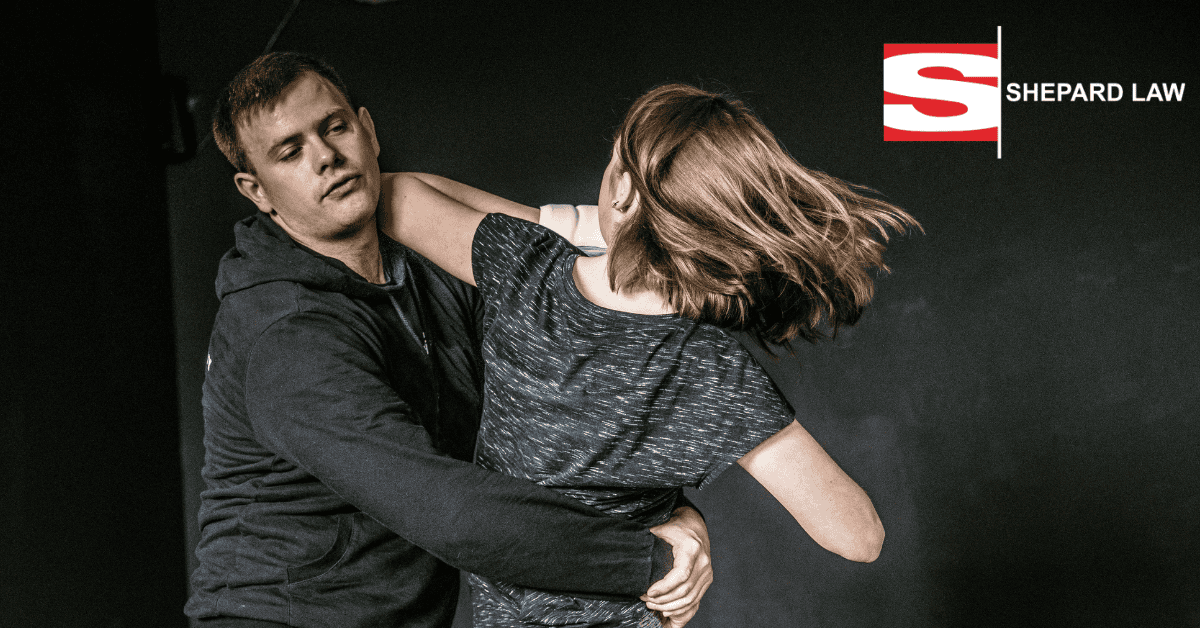Understanding Self-Defense in Criminal Law
Legal Definition of Self-Defense
Self-defense is a fundamental concept in criminal law that allows individuals to protect themselves from harm. Legally, self-defense is defined as the use of reasonable force to prevent an imminent threat of violence. The legal framework surrounding self-defense varies significantly across jurisdictions, but the core principle remains the same: an individual must believe that they are in immediate danger and that the force used is necessary to prevent harm. In many legal systems, self-defense is considered a legitimate defense when the threat is imminent, the response is proportional, and the individual did not provoke the attack. Understanding these conditions is crucial for anyone considering a self-defense claim.
The nuances of self-defense laws can differ drastically between jurisdictions. For instance, some states have "duty to retreat" laws, requiring individuals to avoid confrontation if safely possible, while others have "Stand Your Ground" laws that remove this obligation. These differences can significantly impact the outcome of a self-defense claim. It's important for individuals to be aware of the specific self-defense laws in their area to ensure they are acting within their legal rights. In Panama City, Florida, where Shepard Law operates, understanding these local laws is vital for anyone involved in a self-defense case.
Elements of a Self-Defense Claim
A successful self-defense claim hinges on several key elements. One of the most critical is the necessity of an imminent threat. This means that the danger must be immediate and unavoidable, prompting the need for a defensive response. Additionally, the response must be proportional to the threat faced. For example, using deadly force in response to a non-lethal threat may not be considered reasonable or justified. The legal system often employs the "reasonable person standard" to assess whether the actions taken were appropriate under the circumstances. This standard considers what a typical person might do in a similar situation, providing a benchmark for evaluating self-defense claims.
Another important aspect of self-defense claims is the concept of retreat. In some jurisdictions, individuals are required to retreat or avoid confrontation if it is safe to do so. This "duty to retreat" can play a significant role in determining the validity of a self-defense claim. However, in states with "Stand Your Ground" laws, individuals are not obligated to retreat and can use force, including deadly force, if they reasonably believe it is necessary to prevent harm. Understanding these elements and how they apply to specific cases is essential for anyone involved in a self-defense situation.
Types of Self-Defense
Self-Defense vs. Defense of Others
While self-defense focuses on protecting oneself, the concept of defending others is equally important in criminal law. Defense of others allows individuals to use reasonable force to protect someone else from harm. This type of defense is based on the same principles as self-defense, requiring an imminent threat and a proportional response. However, the legal standards for defense of others can vary, with some jurisdictions requiring a closer relationship between the defender and the person being defended. Legal precedents and case law often provide guidance on how the defense of others is applied in specific situations.
In practice, scenarios where defense of others is applicable can range from intervening in a physical altercation to preventing a violent crime. The key is that the defender must reasonably believe that the person they are protecting is in immediate danger and that their intervention is necessary. Understanding the legal boundaries of defending others is crucial for anyone considering this type of defense. It's important to note that, like self-defense, the laws governing defense of others can vary significantly by jurisdiction, making it essential to be informed about local regulations.
Stand Your Ground Laws
Stand Your Ground laws have become a significant aspect of self-defense claims in recent years. Originating in the United States, these laws allow individuals to use force, including deadly force, without the obligation to retreat if they believe it is necessary to prevent harm. The concept behind Stand Your Ground laws is to provide individuals with the right to defend themselves without fear of legal repercussions for failing to retreat. These laws have been adopted in several states, including Florida, where they play a crucial role in self-defense cases.
Despite their widespread adoption, Stand Your Ground laws have been the subject of controversy and criticism. Opponents argue that these laws can lead to unnecessary violence and may be applied inconsistently. Critics also point to cases where Stand Your Ground laws have been used to justify actions that might otherwise be considered excessive or unjustified. Understanding the implications of these laws is essential for anyone involved in a self-defense case, as they can significantly impact the legal proceedings and outcomes.
Application of Self-Defense in Criminal Cases
Burden of Proof in Self-Defense Claims
In criminal cases involving self-defense, the burden of proof is a critical factor that can influence the outcome. Generally, the prosecution bears the burden of proving that the defendant's actions were not justified as self-defense. However, once a self-defense claim is raised, the burden can shift to the defendant to provide evidence supporting their claim. This evidence can include testimony, witness statements, and any other relevant information that demonstrates the necessity and reasonableness of the defensive actions taken.
The role of evidence and testimony is paramount in establishing a self-defense claim. Defendants must present a compelling case that clearly illustrates the presence of an imminent threat and the proportionality of their response. This often involves detailing the circumstances leading up to the incident and providing credible witnesses who can corroborate the defendant's account. Having experienced legal representation can be invaluable in navigating the complexities of self-defense claims and ensuring that the burden of proof is effectively managed.
Impact of Self-Defense on Criminal Charges
A successful self-defense claim can have a profound impact on criminal charges, potentially leading to an acquittal or reduced charges. When a defendant successfully demonstrates that their actions were justified as self-defense, the charges against them may be dismissed entirely. In some cases, a self-defense claim can also result in a plea bargain, where the defendant agrees to plead guilty to a lesser charge in exchange for a reduced sentence. This can be a strategic option for defendants who want to avoid the uncertainty of a trial.
Notable cases where self-defense claims have significantly altered the outcome highlight the importance of a well-prepared defense strategy. These cases often involve complex legal arguments and require a thorough understanding of self-defense laws. In Panama City, Florida, individuals facing criminal charges related to self-defense can benefit from the expertise of Shepard Law, which specializes in criminal defense and has a proven track record of successfully handling self-defense cases.
Challenges and Limitations of Self-Defense Claims
Legal and Ethical Considerations
Defendants claiming self-defense often face a range of legal and ethical dilemmas. One of the primary challenges is ensuring that the claim is both legally sound and ethically justifiable. This involves navigating complex legal standards and avoiding common pitfalls that can undermine a self-defense claim. For example, defendants must be careful not to exaggerate the threat they faced or misrepresent the circumstances of the incident. Ethical considerations also come into play, as defendants must balance their right to self-defense with the potential consequences of their actions.
Public perception and media influence can also impact self-defense cases, adding another layer of complexity. High-profile cases often attract significant media attention, which can shape public opinion and potentially influence the outcome of a trial. Defendants must be prepared to address these external factors and present a clear, consistent narrative that aligns with the legal standards for self-defense. In Panama City, Florida, Shepard Law provides expert guidance to help defendants navigate these challenges and build a strong defense.
Limitations Based on Circumstances
Self-defense claims are not always straightforward, and various circumstances can limit their applicability. Factors such as the location of the incident, the relationship between the defendant and the aggressor, and any prior history of conflict can all impact the validity of a self-defense claim. For example, self-defense claims may be more challenging to establish in cases involving domestic disputes or situations where the defendant had a prior history of violence. Additionally, the use of excessive force or illegal weapons can further complicate a self-defense claim and lead to its rejection.
Understanding these limitations is crucial for anyone considering a self-defense claim. Defendants must be aware of the specific circumstances that could affect their case and take steps to address any potential issues. In some cases, this may involve gathering additional evidence or seeking expert testimony to support the self-defense claim. In Panama City, Florida, Shepard Law offers comprehensive legal support to help defendants navigate these complexities and achieve the best possible outcome for their case.
Advice for Individuals Considering a Self-Defense Claim
Consulting Legal Counsel
When considering a self-defense claim, seeking legal counsel is of utmost importance. Experienced defense attorneys play a critical role in building a strong self-defense case, providing valuable insights and guidance throughout the legal process. They can help defendants understand the nuances of self-defense laws, gather evidence, and develop a compelling defense strategy. In Panama City, Florida, Shepard Law offers trustworthy legal representation for individuals facing self-defense claims, ensuring that their rights are protected and their case is presented effectively.
Finding qualified legal representation is essential for anyone involved in a self-defense case. Defendants should look for attorneys with a proven track record in criminal defense and a deep understanding of self-defense laws. It's also important to choose an attorney who is familiar with the local legal system and has experience handling cases in the specific jurisdiction. By partnering with a knowledgeable legal expert, defendants can increase their chances of a successful outcome and ensure that their self-defense claim is handled with the utmost professionalism.
Understanding Legal Rights and Responsibilities
Educating oneself about legal rights and responsibilities is crucial for anyone considering a self-defense claim. Individuals must be aware of their rights to protect themselves and the legal standards that apply to self-defense cases. This includes understanding the specific self-defense laws in their area, as well as any obligations they may have, such as the duty to retreat. Staying informed about these legal requirements can help individuals make informed decisions and avoid potential legal pitfalls.
For those seeking to learn more about self-defense laws, there are numerous resources available for further reading and legal assistance. Local legal aid organizations, online legal databases, and consultations with experienced attorneys can provide valuable information and support. In Panama City, Florida, Shepard Law is committed to helping individuals understand their legal rights and responsibilities, offering expert guidance and representation for those facing self-defense claims. By staying informed and seeking professional legal assistance, individuals can navigate the complexities of self-defense cases with confidence.
If you find yourself in a situation where a self-defense claim may be necessary, it's important to have the right legal support by your side. At Shepard Law in Panama City, Florida, we focus on criminal defense and have extensive experience handling self-defense cases. Our team of dedicated attorneys is here to provide you with the expert guidance and representation you need. Don't hesitate to reach out to us for a consultation and let us help you protect your rights.
Contact Shepard Law at (850) 290-2505 today to learn more about how we can assist you with your self-defense claim.


